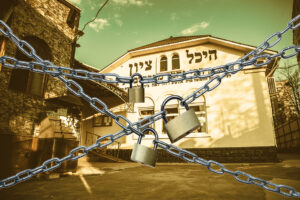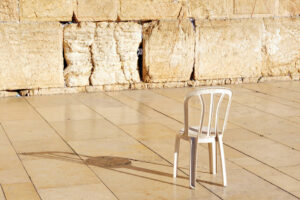Down With Negativity!
At times Rebbe Nachman reminisced about the challenges he faced in his spiritual growth in his youth. He would speak about the obstacles he had faced, the times he felt he wasn’t progressing despite his strong desire to learn and connect with God. Even so, he always encouraged himself and refused to give up. Early in his life, he developed the habit of always making a fresh start.
That kind of thinking is rare in young people – both because it doesn’t come naturally to them, and because the adults around them don’t encourage them to think that way. Even with Rebbe Nachman’s mature way of thinking, he felt that an outside source of support would have helped him immeasurably in his youth. As he put it, “If only I had had someone to encourage me not to give in, telling me to make every effort, no matter what … I would have accomplished in a day what took me a year!”
Negative thinking is so pervasive. It’s all too easy to sap ourselves of vital energy as we focus on our faults and failings. Hyper-focusing on what’s broken gets in the way of making the repairs. Rebbe Nachman strongly advised against wallowing in that kind of self-censure. “Don’t let your smallness get in the way of your greatness!” he would cry.
If someone really is trapped in negative behaviors, from where should he draw the encouragement to shake them off? Rebbe Nachman taught that even such a person should never give up. Instead, he should delve into the ideas that the Rebbe shared in the lesson Azamra! (I Will Sing!) (Likutey Moharan I, 282). Rebbe Nachman enjoined his followers to live by this teaching.
Once, one of Rebbe Nachman’s students appealed to him for help in changing his negative attitudes and actions. “How am I ever going to get out of the mess that I’m in?” he asked. Rebbe Nachman replied, “You need to do whatever good you can. As long as you persist in doing whatever good you can – as long as you’re diligent at it – the bad will eventually fall away and only the good will remain.”
Based on Shivtey HaRan #6; Siach Sarfey Kodesh II:34
- 0 comment


















